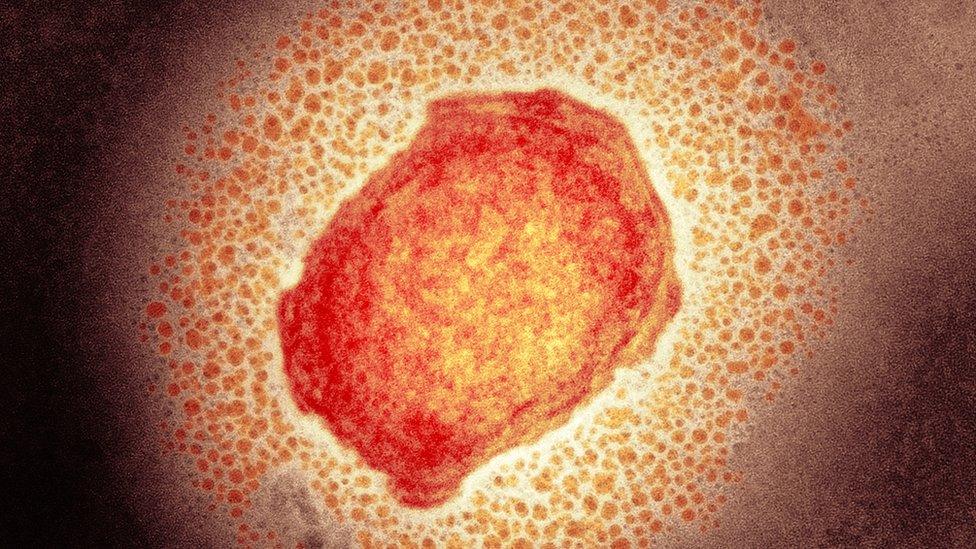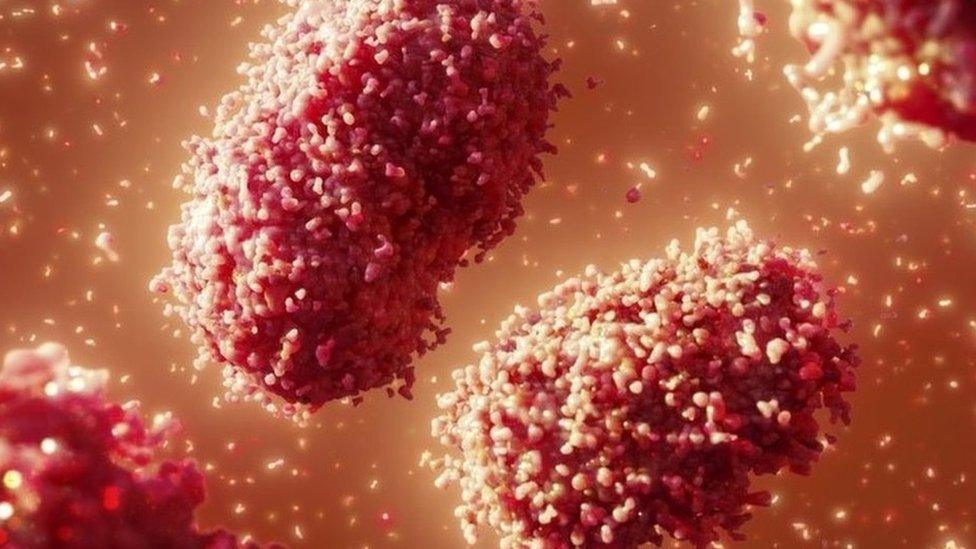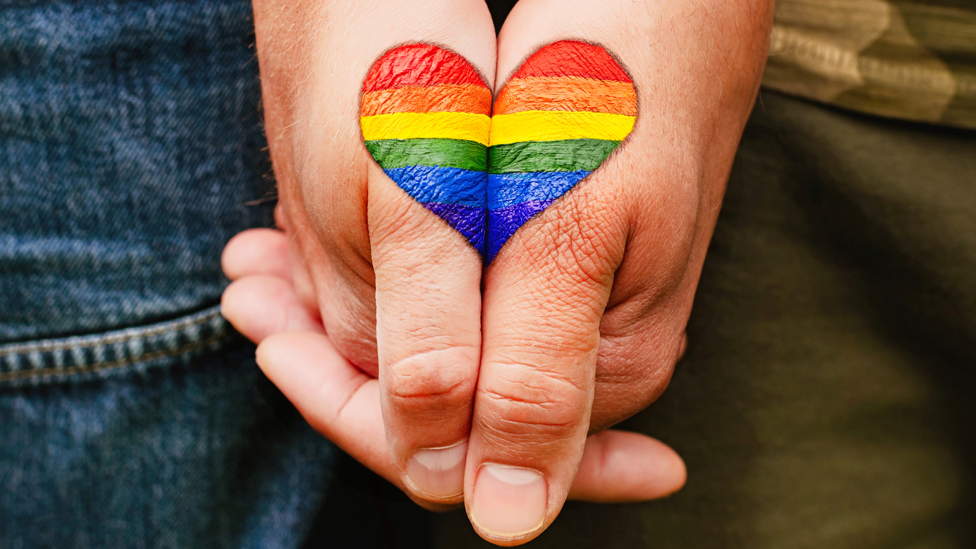Monkeypox jab to be offered to at-risk gay and bisexual men
- Published

Monkeypox virus particle
Some gay and bisexual men at higher risk of catching monkeypox should be offered a vaccine, say UK health officials.
This could help to control the recent outbreak of the rare virus in the UK in which 793 people have been infected so far.
Monkeypox is not defined as a sexually-transmitted infection.
But it can be passed on by close contact during sex, and with bedding, towels and skin.
The UK Health Security Agency (UKHSA) says that a vaccine designed to protect against smallpox, called Imvanex, will help protect people who could be exposed to monkeypox.
The vaccine is effective against monkeypox because it is from the same family of viruses. Its use has been signed off by the UK's vaccine experts, the Joint Committee on Vaccination and Immunisation (JCVI).
Health officials say they are continuing to see "a notable proportion of cases in gay, bisexual and other men who have sex with men".
They say they hope rolling out vaccines to those at higher risk will "break chains of transmission".
A doctor may now advise vaccination for someone who, for example, "has multiple partners, participates in group sex or attends 'sex on premises' venues", UKHSA says.
At-risk men should not come forward for a vaccine until contacted.
More details are due to be set out shortly on how they can take up the offer.

Watch What Is Monkeypox? on BBC iPlayer.

'Positive move'
Dr Mary Ramsay, head of immunisation at UKHSA, said: "By expanding the vaccine offer to those at higher risk, we hope to break chains of transmission and help contain the outbreak.
"Although most cases are mild, severe illness can occur in some people, so it is important we use the available vaccine to target groups where spread is ongoing."
If you have these symptoms, the advice is to avoid close contact with others and call NHS 111 or your local sexual health centre - but call ahead first.
Alex Sparrowhawk, from Terrence Higgins Trust, said targeted vaccination "is a positive move forward" while the data still shows monkeypox is disproportionately affecting gay and bisexual men in the UK.
Robbie de Santos, from charity Stonewall, said: "While we know anyone can catch monkeypox, we welcome the vaccine being offered to those gay and bi men who are eligible, who are currently at a higher risk of getting the virus.
"It is important that gay and bi men get the vaccine when offered to protect themselves and others.
"Let's help get the outbreak under control so we can all have a safe and happy pride season," he added.
The vaccine is already being offered to most healthcare workers caring for patients with suspected or confirmed monkeypox before being exposed, and to close contacts of confirmed cases within four days of exposure.
More staff caring for monkeypox patients and workers in laboratories where the virus is being handled are also now being offered the vaccine.
Of the 793 lab-confirmed cases of monkeypox in the UK since early May, 18 were in Scotland, three were in Northern Ireland, six were in Wales and 766 were in England.
Monkeypox virus is usually only seen in these numbers in areas of west and central Africa - but hundreds of countries outside of Africa have now seen outbreaks in recent weeks.
Related topics
- Published5 August 2022

- Published14 June 2022

- Published28 May 2022
